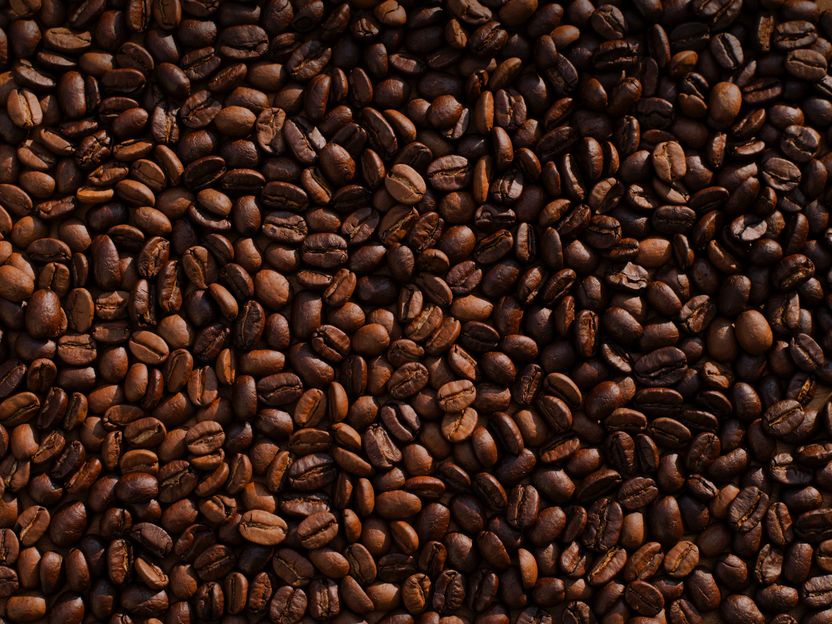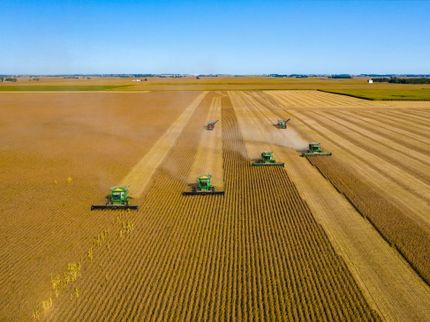Coffee cheaper than ever: Producers see existence endangered
Advertisement
A huge ceiba tree adorns the central square of the town of San Pablo in Guatemala. The national tree of the Central American country is outnumbered in the region - the coffee plants of the countless small plantations dominate in the tropical hot and humid area.

Photo by Mike Kenneally on Unsplash
Coffee from Guatemala is in demand in Europe. According to the EU Commission, last year around 43,000 tonnes of coffee were exported from Guatemala to the EU worth 130 million euros.
Names like "Finca Berlín" recall that some plantations were founded by Germans before they were expelled and their plantations divided during the Second World War.
A large part of the beans growing here now end up in German shops as Fairtrade organic coffee.
However, this could change - because of the low world market price, the coffee farmers in the region are in an untenable situation. "Coffee growing is definitely no longer profitable today," says José de León, one of the largest small farmers in San Pablo with a five-hectare plantation.
In Germany, the waxy drink is one of the most popular beverages. According to the German Coffee Association, every German drank an average of 164 litres of coffee last year.
According to the International Coffee Organization (ICO), the price of green coffee fell by almost seven percent in August compared with July. At 96.07 US cents per pound, the average value was more than eight cents below the August 2018 value. In April, the price was 94.42 cents, the lowest since July 2006. In April 2011 it had still been more than 2.30 dollars. According to ICO, oversupply is the main reason - export volumes increase every year. The largest exporting countries are Brazil and Vietnam.
For four years, almost every loss has been writing in San Pablo, Don José says, as the 63-year-old farmer is called. Many would give up growing coffee, many would emigrate because of a lack of alternatives.
"Coffee is the second most important raw material traded worldwide, behind crude oil," says Katrin Knauf of the Hamburg Institute of International Economics. The oversupply was not matched by a significant surge in demand, especially from China. Similarly, it is not apparent that coffee is used in other products such as cosmetics.
When looking at the German shelves, one notices: Consumers often buy coffee on offer. According to the market research company Nielsen, the share of sales of filter coffee, which is available in the range, rose to 61 percent in the first half of the year. In the same period of the previous year it was 59 per cent. "Filter coffee in particular is a category in which the consumer also has corner prices in mind," says Christiane Stuck, drinks expert at Nielsen.
The classic filter coffee is still the most commonly purchased coffee in this country. According to the German Coffee Association, the market share last year was 57 percent. Accordingly, the whole bean segment is enjoying increasing popularity; its share was 29 percent in 2018.
According to Don José, about 80 percent of the approximately 60,000 inhabitants of San Pablo live from coffee cultivation. 87 farmers have joined together to form a cooperative, which belongs to the national federation Fedecocagua. He markets the coffee - the boss is Swiss.
Don José calculates that 750 quetzals (around 86 euros) must be taken per quintal of coffee in order to make ends meet. "We're selling for 650 at the moment." Just because the association's adding something, many could go on at all.
The organic standards demanded by the USA and the European Union are adhered to, explains Leonel Carmelo, technical advisor to Fedecocagua in San Pablo. However, this is not remunerated accordingly. "The producers ask us: What is the point of being satisfied that our customers can consume a chemical-free product if we are hungry?
The farmers could not afford to pay their workers the legal minimum wage of the equivalent of ten euros a day, says Carmelo. In order not to lose their Fairtrade certificates, they paid according to the quantity of coffee cherries harvested instead of per day. Money is also no longer enough to fertilize, replant or remove weeds as often as before. In the long run, quality will suffer, and there will be fewer jobs for the workers. "Because they can't find anything else in the surrounding area, they emigrate - to the cities, to Mexico or where everyone wants to go: to the USA," says Carmelo.
The prices paid to farmers were in many cases insufficient to cover production costs, according to an ICO report in May. The livelihoods of smallholders are seriously affected as a result. "Multinational coffee companies pay coffee farmers only a quarter of the price set in the 1983 International Coffee Agreement," stresses Fernando Morales-de la Cruz, founder of the Café for Change initiative. As the world's largest coffee importer, the European Union is the biggest financial beneficiary of the misery in the growing regions, he says. There are still hard times for coffee growers like Don José./nk/mni/DP/stk (dpa)
Note: This article has been translated using a computer system without human intervention. LUMITOS offers these automatic translations to present a wider range of current news. Since this article has been translated with automatic translation, it is possible that it contains errors in vocabulary, syntax or grammar. The original article in German can be found here.
































































